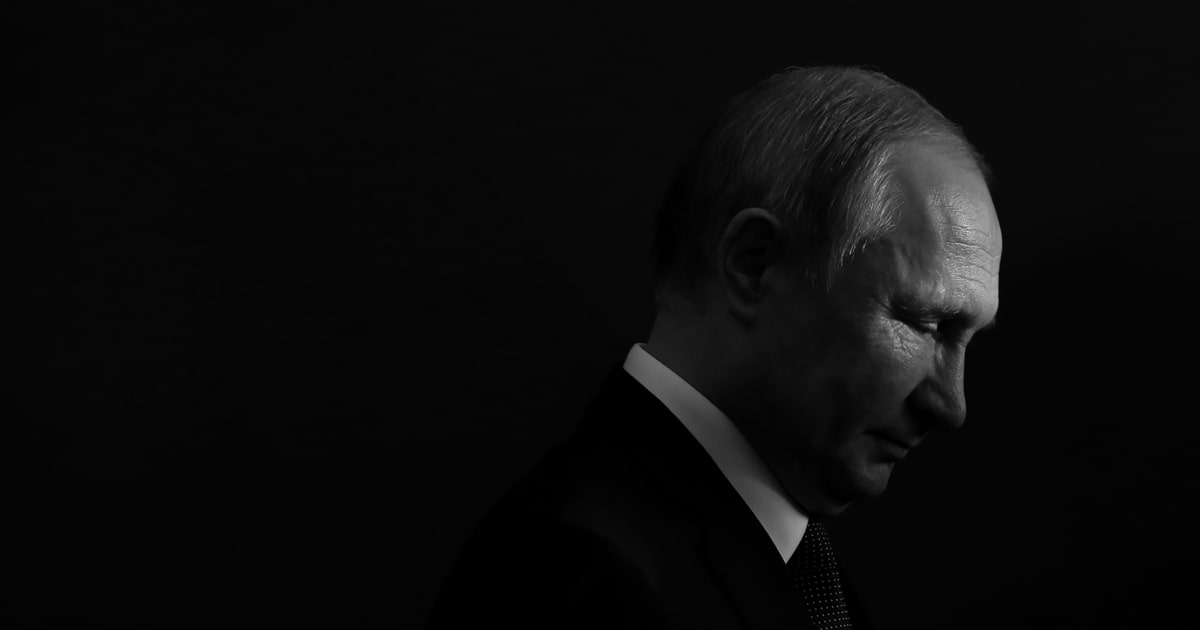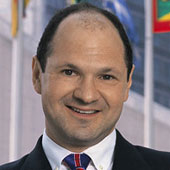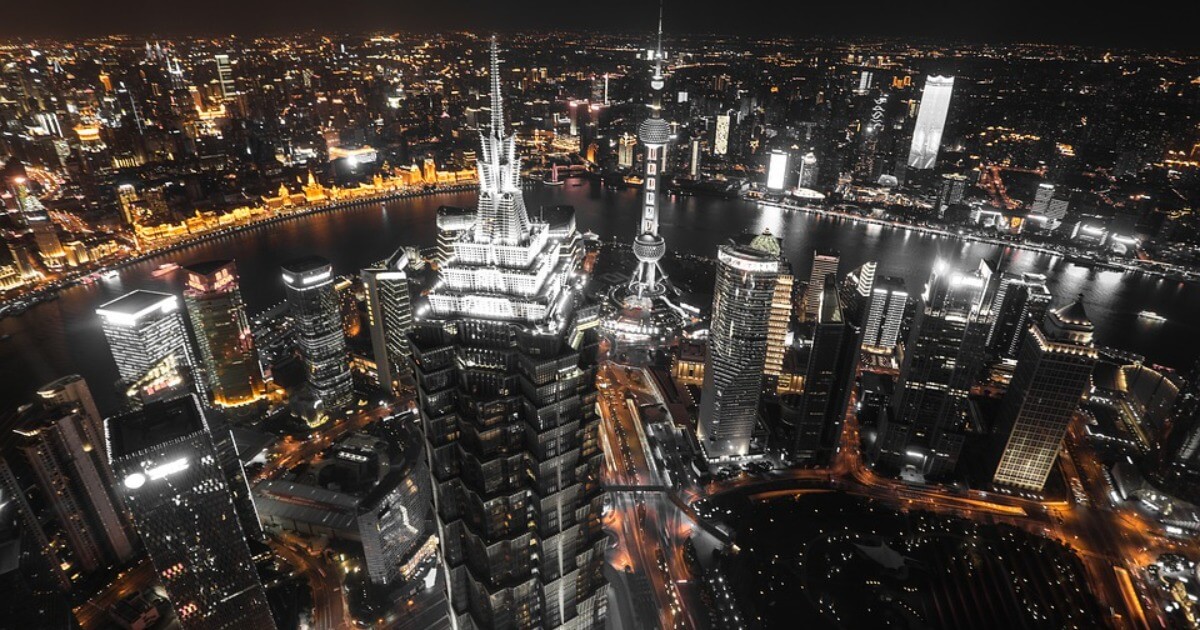Putin’s 2020 Russia and Vladimir Voynovich’s “Moscow 2042”
Has Putin’s Russia of 2020 been foreshadowed by Russian novels, in a mixture of wicked satire and genuine tragedy?
July 2, 2020

Is it possible that a contemporary Russian writer a few decades ago ominously predicted Russia’s crazy and dark present and future under Vladimir Putin?
In Russia, a writer is more than a writer
To gauge the full significance of the question, it is important to know that a writer in Russia is more than a writer — and more like a prophet and a moral authority.
For evidence, consider that Lenin once wrote an article calling Leo Tolstoy “the mirror of the Russian Revolution.”
And Alexander Solzhenitsyn was kicked out of the Soviet Union precisely because he was a moral authority. To protect their fellow Russians from further exposure, Soviet border guards always searched foreign visitors’ luggage lest they smuggle in any of his novels.
Prophets, whether communist or not
The writers themselves were keenly aware of their role. Both Tolstoy and Solzhenitsyn had long thick beards like biblical prophets. Like biblical prophets, they also had a large group of disciples. They also took themselves quite seriously.
So did the people shaping the Russia revolution. The communists, like medieval theologians describing the Kingdom of Heaven, were eager to describe the communist future as total happiness for all working people. The communists also took themselves extremely seriously.
Post-Soviet Russian writers
The response by modern Russian writers has been twofold. First, they stopped being so dead-serious. Second, they also came up with versions of Russia’s future. But unlike the communists of old, they managed to be quite funny while being quite scary — and spot on.
While the Soviet Union was crumbling, but still existing, the writer Vladimir Voynovich (who had also been kicked out of the country but returned to Moscow where he died a few years ago) published a novel — “Moscow 2042.” First published in 1986, the narrator takes a trip to the Soviet Union of the future.
Today, the USSR and communism no longer exist, but quite a few things predicted by Voynovich are fully applicable to Vladimir Putin’s 2020 Russia.
Toward Putin, the gerontocrat
Soviet leaders used to stay in office until they were carried out feet first. Accordingly, in Voynovich’s novel, Russia is ruled by an entrenched gerontocracy. Even soccer players are old men with honorary titles and medals.
Although Putin has always sought to cast himself as youthful and dynamic, he has now been in power for 20 years and has long passed the age of retirement — as well as the average life expectancy for a Russian male.
And thanks to the constitutional referendum he is currently marshaling through, he may have as much as another 16 years in office. After all, the changed Russian constitution allows him to rule until 2036, by which time he will have reached the no longer tender age of 84.
He would be much older than both Stalin and Brezhnev were when they died — and will have ruled longer than either of them as well.
How Putin follows the Voynovich script
Vladimir Voynovich also predicted that the communists would supplement their tired Leninist ideology with some kind of religion.
One of the characters in his book, the chief ideologist named Father Starius, seems to anticipate Patriarch Kirill, whom many people suspect of holding a second job as a KGB colonel.
Meanwhile, Putin and his entourage — all former Communist Party members and high-ranking officers of the KGB — now zealously go to church and advertise their Christian beliefs.
The Russian Orthodox Church, meanwhile, has replaced the Communist Party as the arbiter of ideological orthodoxy.
A shining city
Further, in his Moscow 2042 book, Voynovich shows Moscow as the only city in Russia which still has food and consumer goods. To protect the riches of its inhabitants, a high wall separates it from the rest of Russia which is impoverished and angry.
True, today there is no such wall. But the standard of living in the Russian capital is much higher than in other major Russian cities.
In fact, it is several times as high as in the country’s small towns — including resource-rich regions from where money is siphoned to Moscow and to foreign bank accounts.
A harder go at today’s Russia
Voynovich’s book pokes fun at the senile Soviet leadership, but it is generally benign.
A later novel, published in 2006, is not so forgiving. The tone and frame of Vladimir Sorokin’s “Day of the Oprichnik” is absurdist — but also cruel and scary.
The oprichniki in the title refers to Ivan the Terrible’s Gestapo-like secret police that terrorized the country in the 16th century.
Accordingly, Sorokin shows Russia as a cross between a medieval monarchy and Stalin’s terror state, placed in a postmodern, post-industrial landscape.
Putin, the bureaucrat-tsar
The country is ruled by a former bureaucrat who declared himself a tsar. He distributed honors and material goods among his loyal nobles.
In the book, the money comes from transit fees paid by China for the transshipment of its products to Europe under the Russian territory.
The oprichniks keep the nobles in line, brutally murdering those who lose the tsar’s favor, raping their wives and plundering their estates.
While the novel was written almost 15 years ago, many Russians today note with horror that its dystopian vision is gradually coming true.
True to script
True to the Sorokin script, Putin generously distributes the petrodollars that Russia earns among his buddies, while the hidden rivalries around him result in periodic arrests of one or another of his “nobles.”
Some of the players in the Putin scheme even have the habit of jumping out of high-floor windows during interrogations. Recently, one dismissed local governor who sued Putin in court promptly died of COVID 19.
The two writers’ vision of the future agree in one way. Voynovich’s Moscow is shown as the only city which still has food and consumer goods, and a high wall separates it from the rest of Russia which is impoverished.
In Sorokin’s vision, quite similarly, future Russia has sunk into a kind of post-modern Middle Age where nothing is produced and people seem to live by subsistence farming.
Are Russians living out novels?
Indeed, this is what is happening in Russia today, under the banner of “traditional values” and traditional religious beliefs.
The new version of the constitution declares marriage to be only between a man and a woman — designed specifically for procreation.
But even before that, domestic violence had been decriminalized, but you can go to jail for doubting the government’s version of history. Prayer and holy water are now offered to citizens instead of the collapsing health care system.
Sure, Putin is still a mere president, and not a monarch. But not for long. The referendum on changing the Russian constitution, whose results have been announced even before the polls closed, will make Putin a ruler for life.
Takeaways
Putin’s Russia of 2020 has been foreshadowed by Russian novels -- in a mixture of wicked satire and genuine tragedy.
In Vladimir Sorokin’s vision, future Russia has sunk into a post-modern Middle Age where nothing is produced and people live by subsistence farming.
Writer Vladimir Sorokin shows Russia as a cross between a medieval monarchy and Stalin’s terror state -- placed in a postmodern, post-industrial landscape.
While Vladimir Sorokin’s novel was written 15 years ago, many Russians today note with horror that its dystopian vision is gradually coming true.
Putin generously distributes the petrodollars that Russia earns among his buddies -- while the hidden rivalries around him result in periodic arrests.

